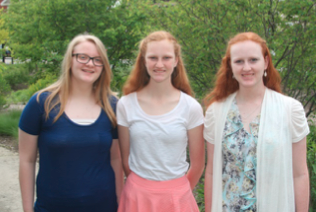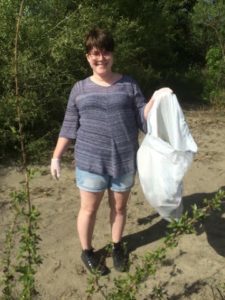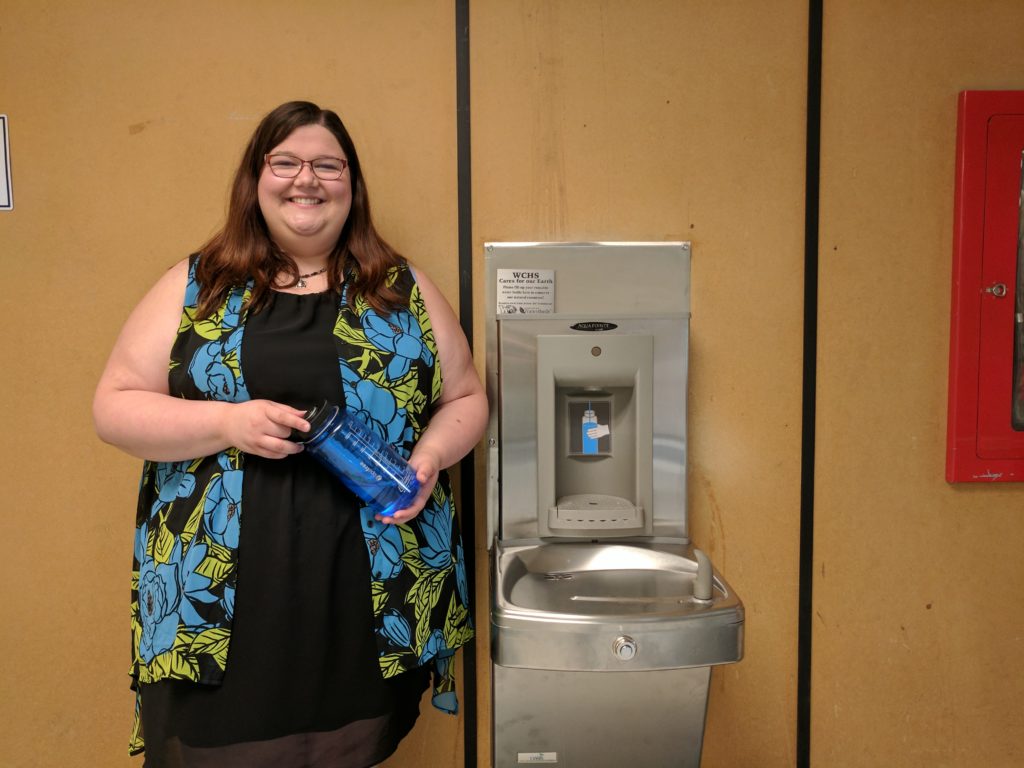2017, CINCINNATI, OHIO, USA
Claire Erny and Jacob Berry knew that residents in their hometown of Wyoming, Ohio yearned for a luscious and weed-free lawn. The dangers of trying to accomplish this goal can be serious and can contain a lot of chemicals and waste that may end up leaching into the waterways, affecting all aquatic life and drinking water. Jacob and Claire decided to come up with a recipe for an environmentally friendly and safe weed killer that is proven just as effective as other weed killers, but much more environmentally friendly, safer and a lot cheaper.
After looking at countless articles about natural weed killers, their teacher, Mr. Neimiller, informed them that he uses “vinegar and dawn dish soap” on his lawn at home, and it works wonders. To make a gallon of this weed killer, residents would need about one gallon of distilled white vinegar and two tablespoons of Dawn dish soap. Before deciding if they wanted to take on this project, Jacob and Claire needed try out this recipe for themselves. They soaked countless weeds with their homemade weed killer and approximately three hours later returned and the results were even better than expected.
The town of Wyoming has a smartphone app called ‘Next Door Wyoming’ people in the community can try to find babysitters, a cheap plumber, someone to walk their dog, pretty much anything. Jacob and Claire decided to make a post on Next Door Wyoming explaining their project and asking the citizens if they would like to try a bottle of the natural and homemade weed killer. Jacob and Claire expected to make about 10-15 bottles of weed killer, but received 40 requests in just 20 minutes. They quickly made extra bottles and dropped the weed killer off the next day and asked that residents email the results back to them.
Just one day after delivering the weed killer to all the residents, many emails came back with positive results and pictures. Not a single resident had a negative comment; some families even said they were going to stop using their old weed killer and start using the homemade version. Their favorite report came from a horticulturist from the Cincinnati gardens who said that her team was going to start using the homemade weed killer. They were able to book the Civic Center for late May (about a month after the final competition) and held an event to further educate the citizens on what a positive and major impact this has on our watershed, and only for $6.00.
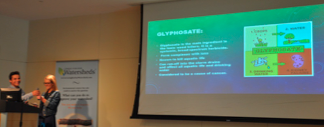

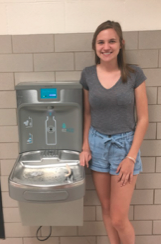
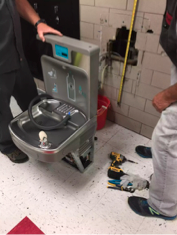
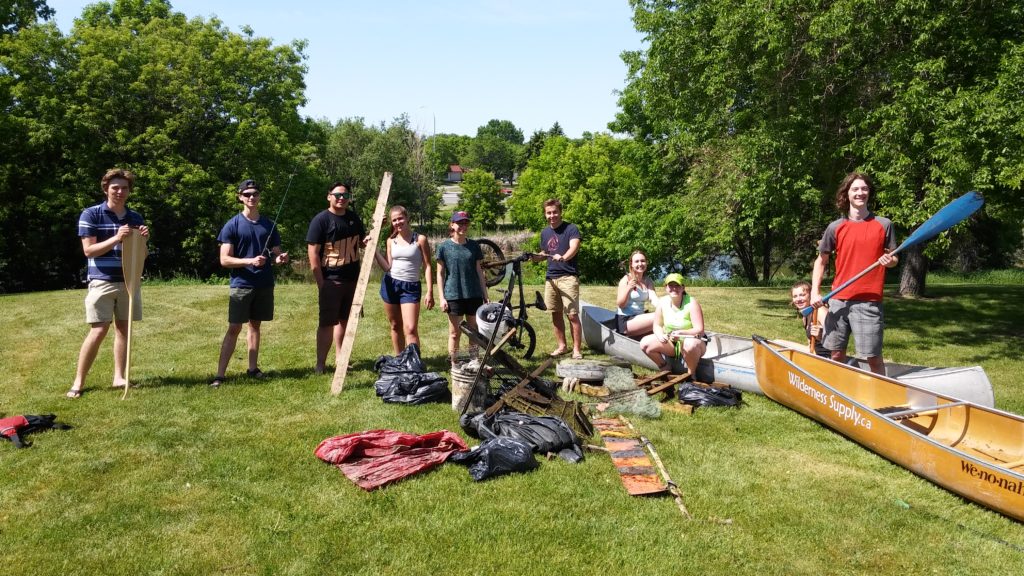
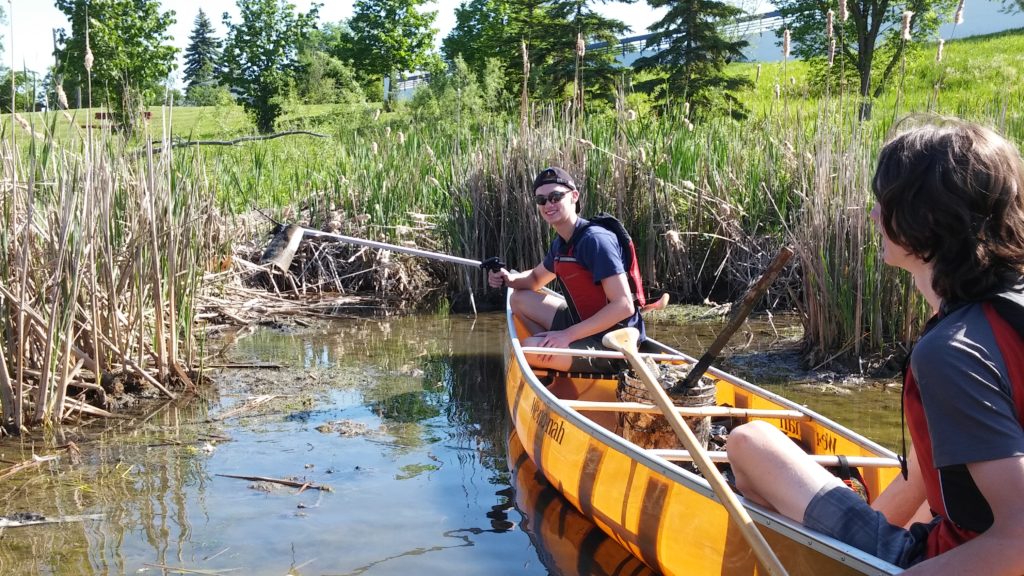 “An underwater litter removal project has never been done in Sturgeon Creek before, and judging by the amount of garbage Westwood students remove from the banks of the creek each year, there is likely a lot of garbage under the surface that needs to be cleaned up. Removing garbage from an aquatic ecosystem such as a stream greatly increases the quality of the habitat for wildlife. Gone are hazards that can cause injury and entanglement for animals. Removing floating and submerged garbage will dramatically increase not only the natural beauty of the park, but also the functionality of the ecosystem.
“An underwater litter removal project has never been done in Sturgeon Creek before, and judging by the amount of garbage Westwood students remove from the banks of the creek each year, there is likely a lot of garbage under the surface that needs to be cleaned up. Removing garbage from an aquatic ecosystem such as a stream greatly increases the quality of the habitat for wildlife. Gone are hazards that can cause injury and entanglement for animals. Removing floating and submerged garbage will dramatically increase not only the natural beauty of the park, but also the functionality of the ecosystem.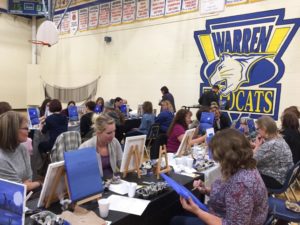
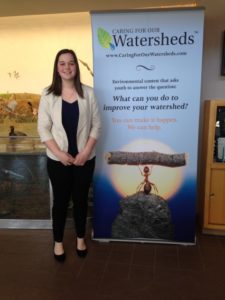
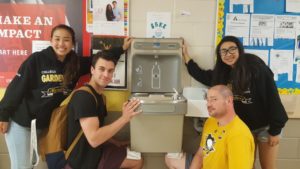
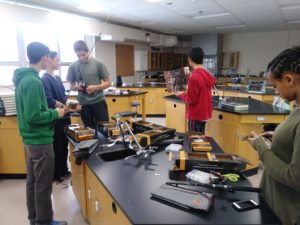 tudents at Elmwood High School in Winnipeg, Manitoba are passionate about sustainability! Their sustainability team has come up with a “Rods and Reels” program that aims to educate youth about sustainable fishing practices and how this can impact their environment and watershed. Students will learn skills such as how to properly debarb a hook, the importance of why, as well as conservation limits and how this links to overall watershed health. This lesson will culminate in a class fishing trip so they can learn practicing proper fishing etiquette and connect with nature.
tudents at Elmwood High School in Winnipeg, Manitoba are passionate about sustainability! Their sustainability team has come up with a “Rods and Reels” program that aims to educate youth about sustainable fishing practices and how this can impact their environment and watershed. Students will learn skills such as how to properly debarb a hook, the importance of why, as well as conservation limits and how this links to overall watershed health. This lesson will culminate in a class fishing trip so they can learn practicing proper fishing etiquette and connect with nature.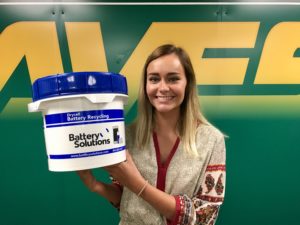 school and is always having to switch out old batteries in game systems. Through this experience she became aware of how many batteries were being tossed out. She started becoming more concerned about the problem as she researched the chemicals inside every single battery and began thinking about the impact these batteries have on our environment. As a senior at Sycamore High School she has been involved in Environmental Club, AP Environmental class, and engineering. With her background knowledge and interest she became motivated to help solve this problem.
school and is always having to switch out old batteries in game systems. Through this experience she became aware of how many batteries were being tossed out. She started becoming more concerned about the problem as she researched the chemicals inside every single battery and began thinking about the impact these batteries have on our environment. As a senior at Sycamore High School she has been involved in Environmental Club, AP Environmental class, and engineering. With her background knowledge and interest she became motivated to help solve this problem. project, Lexi put in place a battery-recycling program in all the schools within the Sycamore School District. These pails are located in the front offices of all schools and have begun overflowing with all the donations from community residents. She hopes recycling batteries becomes just as routine as recycling paper and plastic. With this permanent project Lexi hopes to educate her community on the simple actions they can take to make a big difference.
project, Lexi put in place a battery-recycling program in all the schools within the Sycamore School District. These pails are located in the front offices of all schools and have begun overflowing with all the donations from community residents. She hopes recycling batteries becomes just as routine as recycling paper and plastic. With this permanent project Lexi hopes to educate her community on the simple actions they can take to make a big difference.